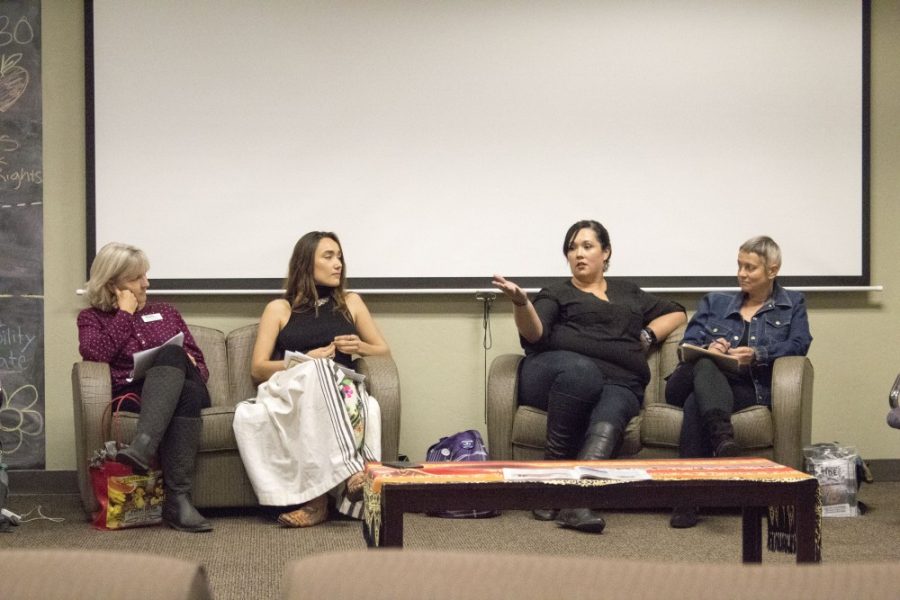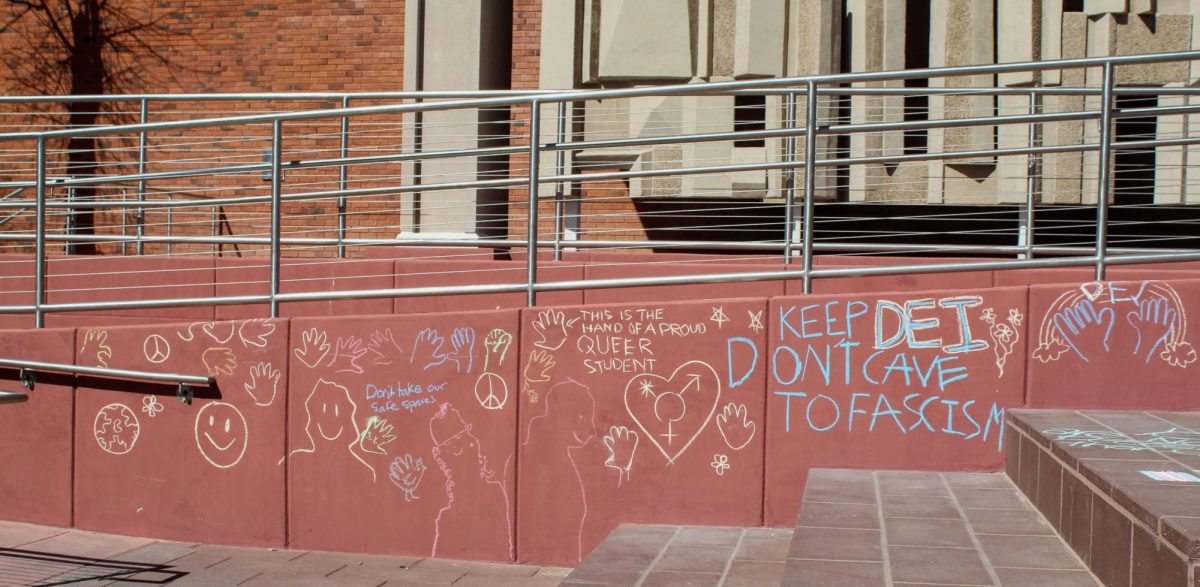Students for Sustainability and the Women’s Resource Center co-hosted an event to celebrate the women of Tucson who are leaders in sustainability and social justice. The Feb. 16 event provided a venue for women in Tucson’s community to talk about the work they do and inspire others to take action.
The panel of women from nonprofits and community organizations included Summer Aguilerafrom the Chukson Tucson Water Protectors; Katie Gannon, director for Trees for Tucson; Hazel Robin from Rising Tide and Katrina Martinez of the International Rescue Committee.
Stephanie Choi and Fiona Davey are the co-creators behind the Women in Green Leadership Panel. Choi is an English senior and the co-director of Students for Sustainability and Davey a public health senior and the co-director of Feminists Organized to Resist, Create, and Empower.
RELATED: New scholarship program sending Pasqua Yaqui girls to Space Camp
“This panel was super important to me because anytime you go to a conference or something and you look at the panel it’s always a white male panel,” Choi said. “They pick males for panels all the time so it was really important for me to make sure all types of genders and identifying people are on panels not just white males.”
This was the third in the panel series with the others being focused on government and business. Both Choi and Davey organized the event and asked panelists questions in a group discussion format.
“One of expectations or goals for the event is having people in the community–who already do work–demonstrate what students can do to affect change, either once they graduate or right now.” Davey said. “We wanted to combine feminism with social justice and environmental work, because they’re really one project.”
Davey began the panel by asking what feminism was to the panelists and what feminist movement meant to them.
“I think of it as service,” Martinez said. “I work with refugee women and I would say they can often be left out of mainstream white feminism. If my work doesn’t serve these women of color then it’s not a fully feminist work.”

Martinez works with refugee women and adjusting them to living in Arizona by helping them find jobs or even walking them through the markets for food.
Martinez spoke on how most of the countries in Africa are also colonized so most of the refugees she works with have experienced very similar things to the struggles of the native and indigenous people.
Choi asked how the work the panelists do ties in with the intersectionality of environmentalism and social justice.
Aguilera spoke on her experience with inequality pertaining to her heritage. She works with the protection of water on Native American tribal lands. Aguilera asked how many in the audience knew what was going on in Standing Rock and the room was full of hands raised in the air.
RELATED: UA community protests Wells Fargo, DAPL on UA Mall
“I think we’re more than water protectors, we protect,” Aguilera said. “So find us and come join us, and come see if we’re your cup of tea, and if not we’ll help guide you to find something that is.”
She spoke on the flaws of the plan for the Dakota Access Pipeline and the struggle they have gone through to protest the project. Through the injustices that happened in Standing Rock, Chukson Tucson Water Protectors was born.
Robin added that some people try to frame climate change as an environmental issue and some people just focus on that aspect while ignoring the social justice aspect all of the inequality so when we talk about climate justice we’re really bring it all together.
Robin spoke on the importance of the progression of feminism and the importance of the inclusion of trans people. She believes that society should recognize that gender is not just male and female, but that there are many different gender identities.

The panelists stressed the importance of advocating and education for social justice and environmental issues the world faces today. From education on who refugees really are to understanding the importance of trees in a desert community or the importance of protecting our water.
All of them urged the audience to learn more and participate in whatever way they could.
“The internet is your ally,” Davey said. “Educate yourself before you ask people. It’s not the job of marginalized people to teach you those things, so you should put it upon yourself, the UA has a lot of great resources… And a lot of the cultural centers have these resources to help educate and involve students,” Davey said.
The Women’s Resource Center on the fourth floor of the Student Union Memorial Center is filled with a variety of resources from condoms, tampons, pregnancy tests and even a lactation room. On Wednesday nights, the center also has a multitude of knowledge and personal experience for those who attended.
Follow David Pujol on Twitter.









